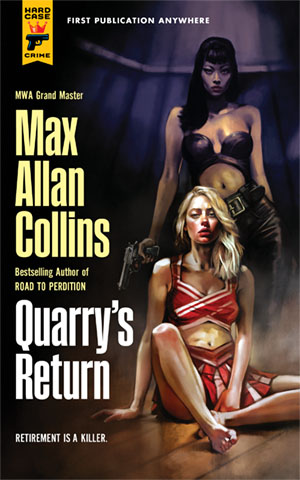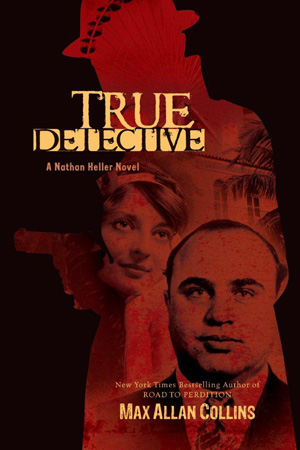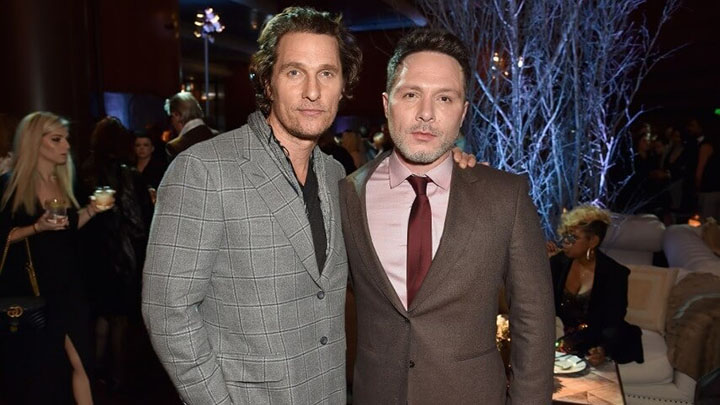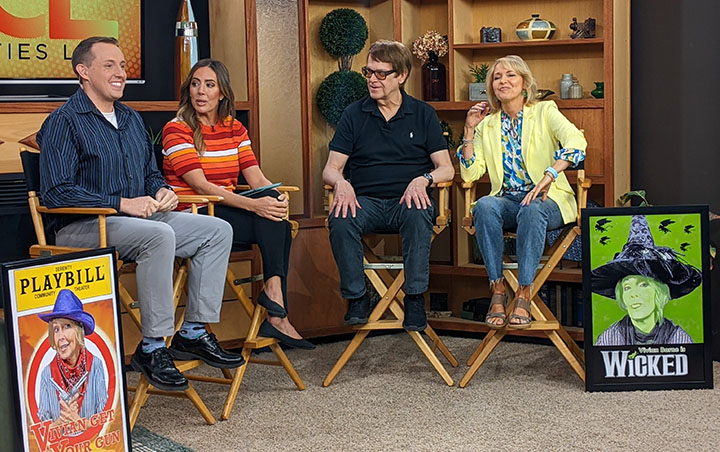Through my dalliances with YouTube, I’ve been able to connect with some interesting people, who have become my friends or at least friendly acquaintances. I spend a little more time watching YouTube than I should, because my wife Barb and I almost always watch a movie in the evening, and sometimes my son Nate comes over (after he helps his wife Abby get his two kids to bed) (Sam and Lucy), making it a double feature. My beddy-bye time is, roughly, midnight and I sometimes have an hour or so to fill before closing out my day. The morsels of entertainment I encounter on YouTube are fun, often informative and, usually, not demanding.
This past week I did a commentary with Heath Holland of the respected Cereal at Midnight on the Chinatown sequel, The Two Jakes, which is one of my favorite movies but not a terribly well-regarded film. It was my opportunity to defend the film and explain myself. This commentary was for the upcoming 4K Blu-ray to be released by Kino Lorber.
Heath is a knowledgeable pop culture expert with an emphasis on film and music, as well as a winning presence on Cereal at Midnight, which appears sporadically but frequently on YouTube. We’ve done several movie commentaries together for Kino, and have several more to do. He’s a pleasure to work with.
I of course have a great creative relationship and friendship with Robert Meyer Burnett. Here’s him talking about our collaboration, True Noir: The Assassination of Anton Cermak, as a guest on a YouTube show dating back a few months (we hadn’t announced Michael Rosenbaum as our Nate Heller yet). The passion, talent and skill that director Rob Meyer Burnett brings to True Noir: The Assassination of Anton Cermak is on full display in this interview (done while we were stilling working on the True Detective adaptation – available at truenoir.co). (Not “com” – “co”!)
More recently I connected with one of the most unique presences on YouTube, Spencer Draper, who calls himself The Damn Fool Idealistic Crusader. He discusses pop culture with an emphasis on genre movies (and books), but has become known, well outside YouTube circles, as a watchdog for flaws on DVDs, Blu-rays and 4K discs. He points out mastering problems and particularly hones in on audio blunders. He is focused, relentless and very, very smart.
I reached out to him to inquire about his experiences on the Warner Bros “DVD rot” problem, which has to do with a batch of 2007-2008 DVDs that are out there rotting even as we speak. He’s been key in alerting collectors and a sometimes (sometimes) cooperative Warner Bros customer service about the problem, and the need – moral responsibility for – replacing defective discs.
There’s a spooky aspect to the contact between Spencer and me. I’ve never gotten in touch with him before, and I don’t believe he’s ever covered anything of mine on his YouTube offerings. I had no reason to think I was on his radar.
But it turns out he was, at that moment, doing a deep dive into my involvement with the Dick Tracy movie, studying my novelization and doing his general thorough digging job. We have now corresponded several times and the experience has been pleasant, even if the Warner Bros aspect hasn’t been. (I am definitely not talking about Warner Archive!)
For Spencer, and for those of you who are new here (even relatively so), I am reprinting an article about how I intersected with the Dick Tracy movie, Warren Beatty’s people, and the Good Folks at Disney. It’s an excerpt from an article I wrote for Lee Goldberg’s Tied In – The Business, History and Craft of Media Tie-In Writing. It is the behind-the-scenes amusing and horrifying story of my writing of the movie tie-in novelization of Dick Tracy.
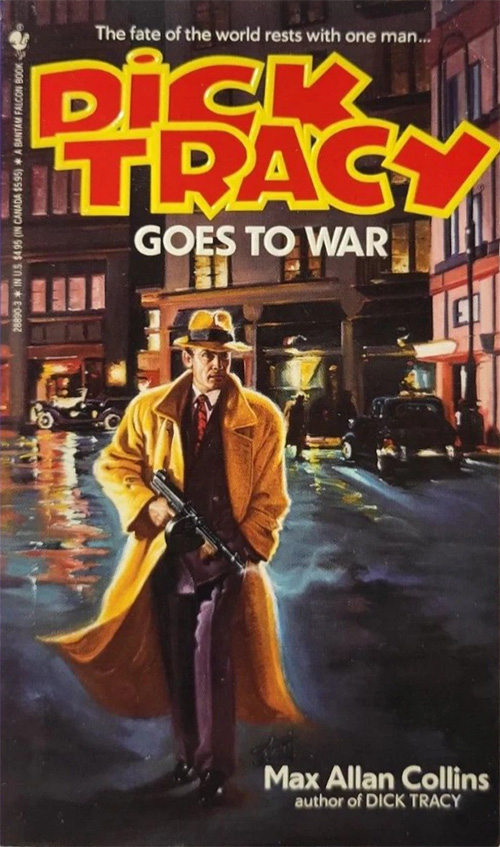
I wanted to write the
Dick Tracy tie-in novel because I’d been the writer of the syndicated strip since 1977, plus I was a mystery novelist. Landing the
Dick Tracy strip was my first really big career break. I got the job after trying out for it, writing a sample continuity. I got the opportunity to try out chiefly because of some mystery novels I’d written as a kid that had a strong comics element (
Bait Money and
Blood Money, both 1973).
My re-boot of the strip got a lot of positive attention, and I loved the job, having been a stone Dick Tracy fanatic since childhood. Before getting the strip, I had even developed a friendship with creator Chester Gould – a rarity, because he was very private – although Chet played no role in my landing this plum assignment.
Some time in the ’80s, I was shown a potential screenplay for Dick Tracy, shared with me by my Chicago Tribune Syndicate editor. I thought it was lousy, and told him so, and he agreed. I figured that was the end of it.
But the Dick Tracy film was a project that wouldn’t die – Clint Eastwood was going to be the square-jawed dick for a while, which was exciting, and then finally Warren Beatty got obsessed with it, and it became a Disney project and a very big deal. I offered to do the novel version and, thanks to my credentials as the writer of the strip, got the gig. I was thrilled.
Then they sent me the screenplay – it was virtually the same lousy one I’d read seven or eight years before! I was shocked and dismayed. Lots of the classic characters, villains and good guys alike, some good situations…but no story. Not really.
I asked my agent what to do about it, wondering what kind of novel I could fashion from such weak material, and he said, “Just do whatever you want with it. Nobody’s going to read it at Disney – this is just small change to them.” Did I mention that my usually very savvy agent had never sold a tie-in before? And that this was the worst advice he ever gave me?
So I wrote a novel very loosely based on the screenplay. I added more characters from the strip, provided a story, even replaced what seemed to me to be unimaginative death traps with my own better ones. It was a terrific little novel, designed by and for a Dick Tracy fan like me.
I sent it in, went on about my business, and several months later my wife Barb and I were preparing to go on a research trip to Nassau (for my Nate Heller novel Carnal Hours) when my agent called with bad news. The Disney people hadn’t even made it through my book – got maybe a third of the way – before saying a faithful-to-the-screenplay page one rewrite was needed.
In seven days.
Dick Tracy is legendarily a movie that Warren Beatty micro-managed. Every tie-in aspect was overseen by Beatty and his top people. The novel I’d written was inappropriate for any film. To have taken these liberties on Dick Tracy was a blundering piece of farcical arrogance on my part that makes Fawlty Towers look like a documentary.
So with a 1989-era laptop (think about it), I went to Nassau and spent 70% of my time in the hotel room salvaging what little I could from my first version. Maybe 25% of it was workable. Actually, some of my non-screenplay stuff made it in, because it didn’t contradict anything (Vitamin Flintheart is in my novel, for instance, but not in the film, not even deleted scenes).
Barb and I were in Nassau four or five days, and I came home and wrote the rest of it, just blazing. What I came up with was pretty good. I was as happy with it as possible, considering the weak screenplay that was my source. But that, as they say, was just the beginning….
I spent many, many hours on the phone with the producer of the film, Barry Osborne (later involved in The Lord Of The Rings trilogy), a gracious, intelligent man, and way too far up the food chain to be giving a lowly tie-in writer such instructions as, “The chair on page 223? It’s green not red,” and, “You have 88 Keyes standing up from the piano too soon on page 187.” Most of the changes I was asked to make had to do with such surface things, and many substantial changes I had made in character motivation and dialogue were overlooked.
This was perhaps the most instructive thing I learned from the experience – if you follow the screenplay out the door, and do the surface of it accurately, you can slip in all kinds of substance where characterization and fleshing out of scenes are concerned.
Osborne actually liked the novel a lot, and he told me on several occasions that I had solved plot problems for them, which they had fixed by way of dialogue looping – and indeed the film has five or six lines I wrote.
Also, he asked me about a scene involving Tracy’s girl friend Tess and her mother, where Mrs. Trueheart says a lot of negative stuff about Dick, how she is delighted that Tess and Dick have broken up and how selfish the detective is, etc. I had softened this scene, making Tess’s mother much more positive about her potential son-in-law. The producer asked me why I’d done that.
“Because,” I said, “Tracy joined the police force to avenge the death of Mrs. Trueheart’s husband – Tess’s father, who ran a deli and got shot by robbers. Mrs. Trueheart adores Dick Tracy. Every Dick Tracy fan knows that.”
And they re-shot the scene along my lines.
So I take a certain pride in knowing that Dick Tracy is a film in part based upon its own novelization. The final battle, however, reached new heights of absurdity, and involved phone calls with high-level folks at Disney. How high level? How about Jeffrey Katzenberg? The “surprise” ending of Dick Tracy is that the mysterious masked bad guy called the Blank is actually Breathless Mahoney. Sorry to ruin it for you, but, yes, Madonna did it.
This surprise seemed painfully obvious to me, the kind of shocker you can damn near figure out in the opening credits. But Beatty, Disney and all associated were convinced they had a surprise on the level of The Sixth Sense (I figured that out, too, about five minutes in). So I was instructed to remove it from the novel.
Wait a minute, you’re saying. Remove what? The identity of the masked bad guy. The solution to the mystery. You know…who the killer is.
This surprise ending, the Disney folks told me, had to be guarded like the Coca Cola recipe or the unretouched Zapruder film. And when I pointed out that Dick Tracy was a mystery story, and that leaving the ending off a mystery story just might disappoint a few readers, this seemed of no particular import.
I did half a dozen rewrites of the ending, sneaking in hints of the Blank’s identity, such as, “Why, look who it is under the mask…” said Tess, breathlessly. No sale. About a page was cut from the book.
I won only one small concession – that any printings after the film came out would include the full ending. Only one small print run represents the complete novel (the sixth, distributed to school book clubs).
There can be no doubt that I hold a singular honor among mystery writers – I wrote a bestselling whodunit… without revealing whodunit.
Perhaps by way of apology, the Disney people flew my wife, son, mother and father and me to the film’s premiere at Disneyworld in Florida. They treated us great. Everybody attached to the movie treated us great, including Warren Beatty. We did a big press get-together with many of the stars. I was doing a Mumbles continuity in the Dick Tracy strip at the time, and Dustin Hoffman (who played Mumbles in the film) read me that day’s strip from a local paper, doing Mumbles’ dialogue in character. Doesn’t get much better than that.
Two postscripts: in our Disneyworld hotel, a coloring book on sale – an item that (it turned out) had been available to the public for several weeks – included the Breathless-is-the-Blank ending. As we say in the funnies, “Sigh….”
Also, the wonderful actress Estelle Parsons (who played Mrs. Truehart in the film) wandered into a bookstore at Disneyworld, where I was signing copies of my open-ended novel. We spoke, and she was very sweet, and I said to her, “You had to re-shoot your big scene, didn’t you?”
She looked at me, amazed. “How did you know that?”
And I told her.
* * *
I have no idea how long I’ve been writing these Update/Blog entries, but it’s been long enough that I’ve had to mark the passing of friends and heroes, as well as friends who were heroes.
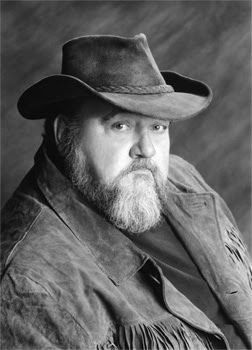 Wayne Dundee
Wayne DundeeI can’t say Wayne Dundee, who passed away recently, was a close friend. There was a time when we were. Seeing him gone does make me feel like the Last Man Standing – of my closest mystery crew, we’ve lost Ed Gorman, Bob Randisi, Steve Mertz, John Lutz, Bill Crider and probably more that I am criminally forgetting.
Wayne was the founding editor of the long-running fan/prozine Hardboiled (more “pro” than “fan” because it was always a paying market). He was one of the first fans who reached out to me, and he specifically wondered if I had anything in my drawer that he might print in his ‘zine, which ran mostly to (as you might imagine) hardboiled crime and detective fiction. As it happened, I did. A novel called Mourn the Living with a character initially called Cord and later Logan and even later (and permanently) Nolan had been stored away long ago.
I got the moldering manuscript (literally, not figuratively) out of a box in the basement and talked Barb into retyping it for me. She did this, gracious partner and writer that she is; and I did a light edit, not wanting to interfere with what the young writer (I’d been 19 when I wrote it) had in mind. Wayne, who specifically described himself as a Nolan fan, eagerly took it and had me break it into several parts for serialization.
Eventually it was collected into a book, and it was recently a bonus feature of sorts in Mad Money, the latest reprint of my Nolan-heists-a-shopping-mall novel, Spree.
Thanks, Wayne.
I vaguely recall reading Wayne’s early work in manuscript, and providing some notes and encouragement; but that memory is vague. I do know he went on to do nine Joe Hannibal mysteries, wracking up several Shamus nominations. A career as a private eye writer is hard to maintain (tell me about it!) and he eased quite naturally into becoming a highly regarded western writer. The last time I heard from him, and it was a post here, was him encouraging me to show my grandson western movies, and to agree that Costner’s Horizon was woefully under-appreciated.
Wayne also appeared in one of my movies! He was the hulking, bearded prison guard who backed up the great Del Close in the scenes regarding the botched attempt to execute Mrs. Sterling (aka Mommy).
James Reasoner, one of the other last men standing, writes a brief but lovely tribute to Wayne here.
* * *
I seem to be a more or less contributor of a segment to Rob and Dieter Bastian’s infectious YouTube show, Let’s Get Physical Media. I’m on as a noir/crime/mystery expert. The weekly episodes usually are on Sunday afternoon, and I have been coming on around 2 pm Central for half an hour or so.
M.A.C.
